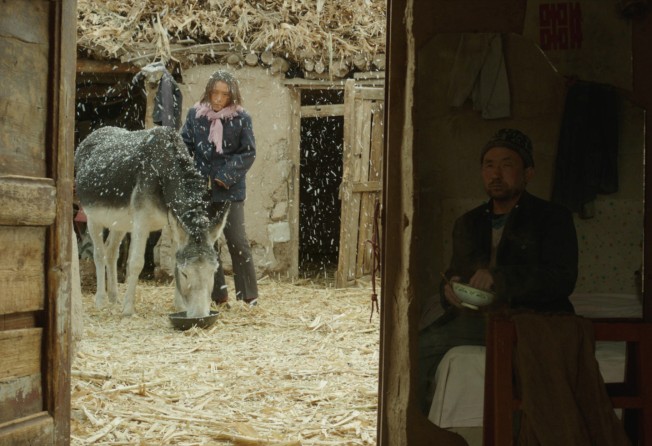Berlin 2022: Return to Dust movie review – Chinese director Li Ruijun finds bleak poetry in an arranged marriage between two villagers
- The tender, heartwarming relationship between a hard-working farmer and an abused woman is at the heart of Return to Dust by Chinese writer-director Li Ruijun
- Wu Renlin, who stars as the farmer, shines in a deeply humane film that also deals with the conflict between rural traditions and increasing modernisation

4/5 stars
In a time when toxic masculinity is a prevalent topic in films, it’s refreshing to see a work about a good man.
Return to Dust is the latest effort from Chinese writer-director Li Ruijun and his first feature-length film since 2017’s Walking Past the Future. At its centre is a farmer named Ma (Wu Renlin). Fair, tender and hard-working, he is not a man who likes to be in anyone’s debt. “This is this, that is that,” he says, more than once, as he settles his accounts.
Early in the film, which is set in Gansu province in northwest China, Ma meets Guiying (Hai Qing), the woman destined to become his wife in an arranged marriage.
Bullied and beaten as a child, she is infertile and unable to control her bladder, frequently wetting herself, and barely speaks in the film’s first half. “Her life is miserable,” remarks one villager, a fact later confirmed when she reveals that she used to live in a shed in her brother’s backyard.
Ma treats her with love and affection. Only once does he lose his temper with her, when she falls over trying to load corn onto a rickety cart pulled by their faithful donkey, and within minutes he is trying to cheer her up again.

They have an affectionate ritual, pressing several seeds into the other person’s skin to imprint a flowerlike shape – a perfect image in a film that marvels in the beauty of the natural world, whether it’s newborn chicks, swallows in a nest or a fish in a river.
Life is exceptionally tough for Ma and Guiying, and the others in the village, who are exploited by those in power. In an intriguing subplot, Ma gains some cachet by giving blood to local bigwig Zhang Yongfu, an unseen figure who has been admitted to hospital and is in need of Ma’s rare blood type.
While Guiying finds it upsetting watching her husband feel faint every time he donates, Ma stoically carries on – yet another example of his selfless nature.
The film also deals with forced urbanisation, as houses are demolished and soulless concrete blocks erected, and the director craftily shows the tensions between rural traditions and increasing modernisation. Although the tone is bleak – with a title like Return to Dust, it’s hardly a surprise – this is also a deeply humane film.
The performances of the two leads impress, particularly that of Wu, a non-professional actor of great physicality. And a word also for their beast of burden – it might be the best donkey in a movie since Robert Bresson’s Au Hasard Balthazar.
Want more articles like this? Follow SCMP Film on Facebook